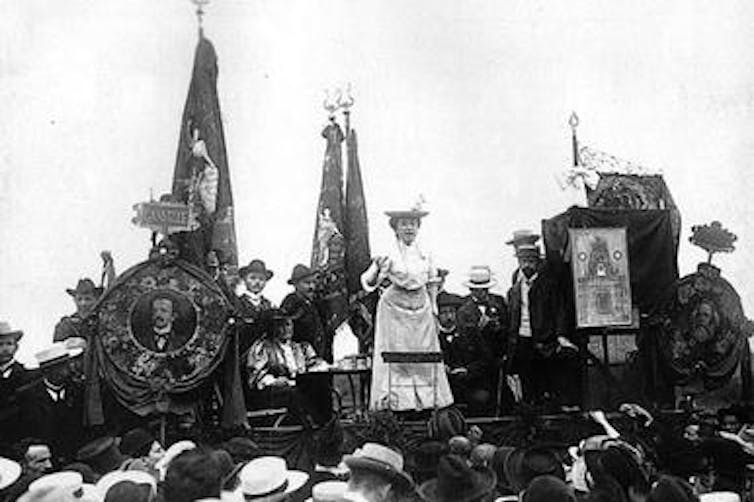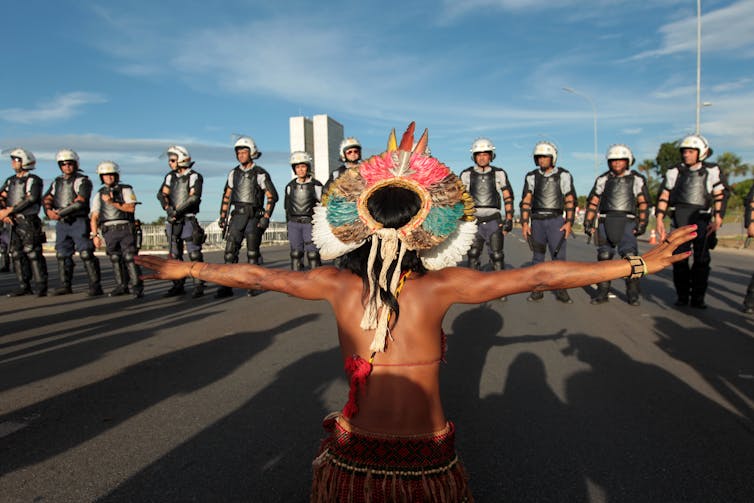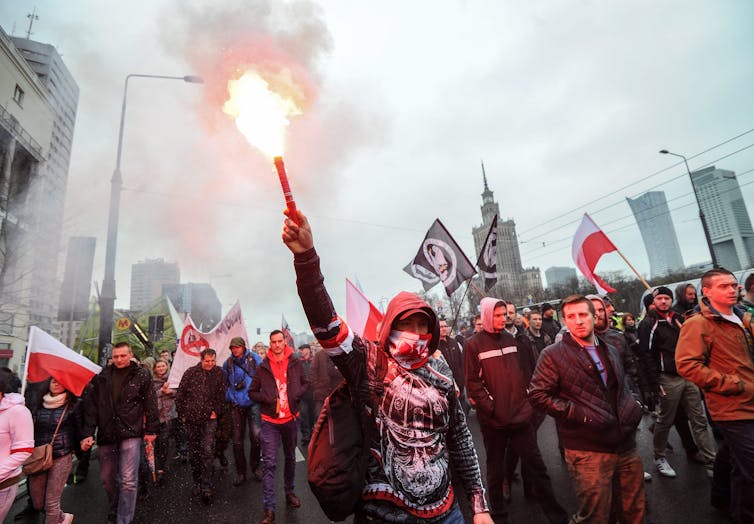Your ‘order’ is built on sand. Tomorrow the revolution will ‘rise up again, clashing its weapons,’ and to your horror it will proclaim with trumpets blazing: I was, I am, I shall be!
The final written words of Polish revolutionary Rosa Luxemburg still resonate 100 years since her death. Murdered by right-wing paramilitaries on January 15, 1919, her fate in Berlin foreshadowed the brutality of the following two decades. The German Revolution she fought for was stamped out in the chaotic aftermath of World War I. But did Luxemburg’s legacy die with it?
Luxemburg’s colossal influence on the left is still celebrated today in Germany and around the world. Her conviction that democratic socialism could flourish was rooted in her meticulous analysis of how capitalism worked and she was convinced that brutality was an inevitable feature of capitalism. Through its need for new resources and territory, Luxemburg believed capitalism would end in collapse and misery.
As her final words suggest, she saw the uncertainty of her day as an opportunity to create a fairer world. With the rise of right-wing strongmen in Donald Trump and Jair Bolsonaro and the ongoing crisis of climate change, we should heed her words today.

Luxemburg was born on March 5, 1871 in Zamość, a city in Russian-occupied Poland. Her parents knew from her earliest years that her congenital hip dysplasia would not stop her from pursuing a passion for justice.

She studied philosophy and economics and in 1898 was awarded a PhD in law from the University of Zurich in Switzerland, where she was also exiled and in hiding from the Russian police. Her thesis charted industrial development in Poland from the Napoleonic Wars to the latter years of the Russian Empire.
Luxemburg wrote constantly, including passionate letters to close friends and fellow feminists Clara Zetkin and Luisa Kautsky. With their correspondence she fought the loneliness of her several imprisonments between 1904 and 1906 and during World War I.
She questioned everything – challenging Karl Marx, some of his theories and her male comrades who prevaricated on war, monarchy, bureaucracy and imperialism – all of which she vehemently opposed.
Luxemburg preferred organising within the labour movement to party politics and she stood against the political class who voted for war in 1914, seeing it as a betrayal of internationalism and the common interest of workers around the world.

Lessons for the modern world
What is Luxemburg’s contribution to our understanding of the world today? Threatened by environmental destruction, violence against women, gross inequality, insecure and exploitative work and the rise of the far-right, her diagnosis of global capitalism is perhaps more relevant than ever.
Read more: Beyond Rosa Luxemburg: five more women of the German revolution you need to know about
For her, economic expansion and the resulting devastation of the environment was not a defect of global capitalism, but an inherent feature of a destructive system. In The Accumulation of Capital she explained that by definition, capital needed to conquer, absorb and destroy non-capitalist economies and territories to survive.
This is evident in the recent decision of Brazil’s new far-right president, Bolsonaro, to “integrate the Amazon region into the Brazilian economy”. This would expand the authority and reach of powerful agribusiness corporations into the Amazon Rainforest – threatening the rights and livelihoods of indigenous people and the ecosystems their lives are entwined with.

Luxemburg criticised Marx for not having paid enough attention to these external contradictions in economic growth. A socialist revolution was, for Luxemburg, the only way to stop the engulfing of non-capitalist life into capitalism.
She taught that war, colonialism and unsustainable extraction from nature are products of global capitalism. The result is the loss of irreplaceable natural wealth and people struggling for food, water and shelter in the developing world.
Read more: Capitalism is killing the world's wildlife populations, not 'humanity'
Luxemburg also criticised economic growth based on financial speculation and profit making in global stock markets. She argued that such a model is prone to crisis, as the 2008 crash demonstrated, which creates unemployment and job precarity that cannot be easily solved.

The economy loses the capacity to give employment to every adult with the capacity to work. Many of Luxemburg’s contemporaries, such as Eduard Bernstein, trusted that credit would alleviate capitalism’s tendencies towards crises. However, in Reform or Revolution Luxemburg argued that credit could only postpone and even intensify crisis.
Economic crises that result in this way allow the far right to stoke division within communities by turning widespread economic insecurity into a stick to beat refugees and immigrants with.
So can we save Earth from the global expansion of capital and the fascism that emerges from it? The hundredth anniversary of Luxemburg’s assassination should make us reflect on her foresight. As Luxemburg herself saw it, the choice is “socialism or barbarism”.

